The Literature Book (Big Ideas Simply Explained) (2016)
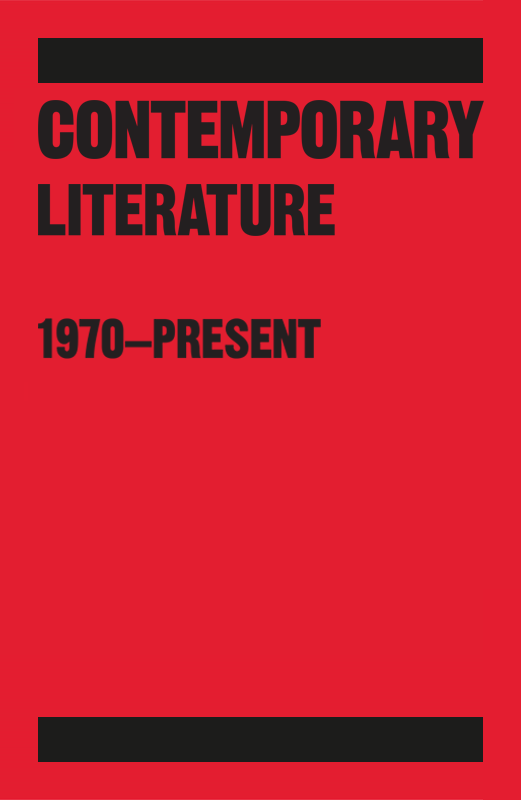
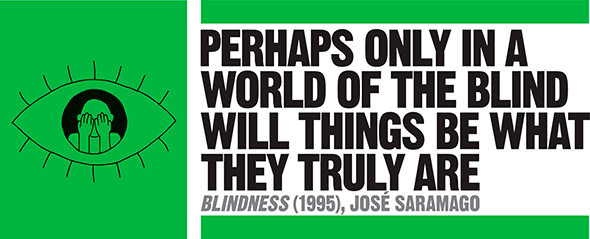
IN CONTEXT
FOCUS
Allegorical satire
BEFORE
1605 In Don Quixote, Miguel de Cervantes explores the inability to see the world as it really is, in his main character’s delusional quest to enact a knight’s saga.
1726 Anglo-Irish writer Jonathan Swift’s Gulliver’s Travels exaggerates moral and political corruption in tales of fantastical cultures.
1945 In Animal Farm, English author George Orwell traces the parallels between the degeneration of politics in human society and a cast of rebellious farm animals.
AFTER
2008-10 US writer Suzanne Collins publishes The Hunger Games, using allegorical satire to indicate the power of media as a political tool in contemporary US society.
José Saramago’s harrowing novel Blindness (originally published in Portuguese as Ensaio Sobre a Cegueira, “Essay on Blindness”) is an example of allegorical satire - a type of narrative that has a parallel subtext that is often moral or political in nature. In allegorical satire, events are used explicitly or implicitly as metaphors to ridicule aspects of society, politics, or life. In Blindness, the satire is inspired by Portugal’s Estado Novo (New State), an authoritarian regime that ruled the country from 1933 to 1974, although the novel’s actual settings, characters, and times are left ambiguous. Under scrutiny is the lack of morality, kindness, and empathy typical of any right-wing capitalist society.
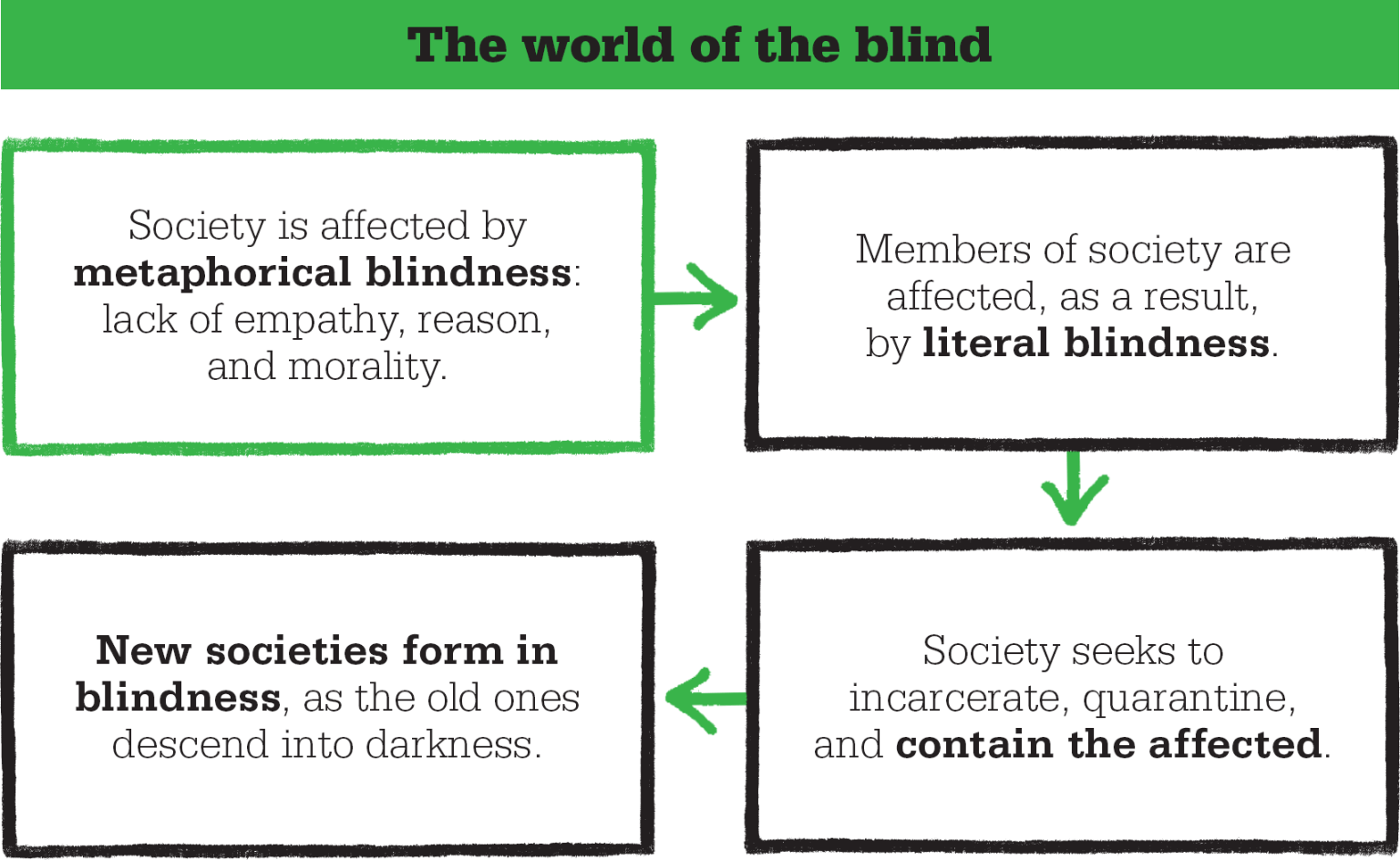
What if we were all blind?
The novel describes events after people in a city of an unnamed country start going blind - not a dark blindness, but a milky, pearl-white blindness. The affliction spreads via human contact or presence and is incurable. The government transfers those affected to a guarded asylum, and leaves them to fend for themselves, with food and cleaning equipment as their only aids.
As a form of society, based on solidarity, begins to emerge among the blinded - fuelled by need, survival, and a return of human empathy - we see the main characters grow as members of a community. Saramago describes the physical and psychological struggles of the newly blinded as a parallel to people who have lost sight of reason, humanity, and the very idea of human society: “These blind internees […] will soon turn into animals, worse still, into blind animals.” The arrival of a group of organized blind thugs becomes an added element of oppression, with obvious political connotations of the violence and terror of a totalitarian regime. Saramago gives his narrative unstoppable force by minimizing punctuation and switching between tenses and perspectives. This creates a sense of being propelled through the story, thus echoing the themes of the narrative.
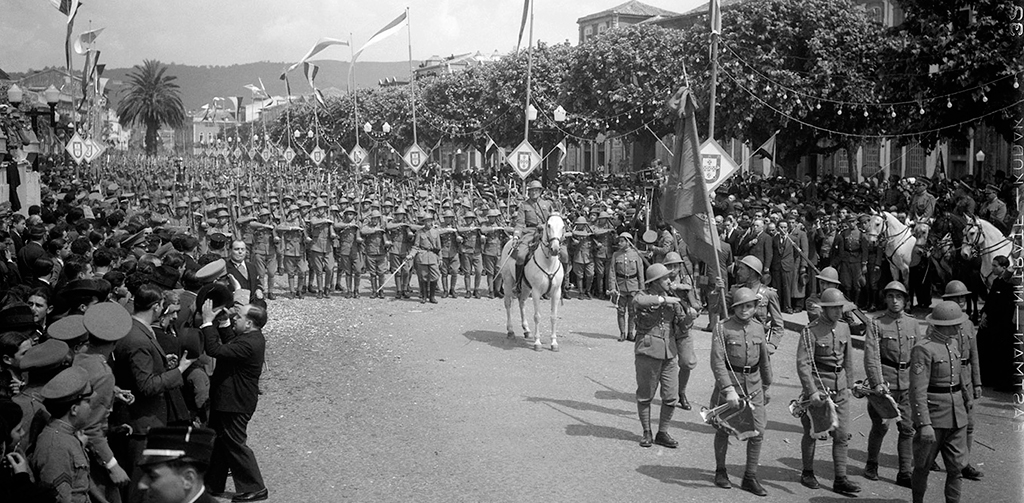
Portugal’s repressive Estado Novo regime is an unspoken presence in Saramago’s text; the book’s title and contents gesture to a parallel theme of a dark and sinister political blindness.
Blindness and insight
The reader is given an added perspective on the bleak situation through the eyes of the doctor’s wife, one of the first internees, but one who feigns blindness to be with her husband. This device allows for an enhanced understanding of the bonds being created, the habits being abandoned, and the ideologies being formed and re-formed in the story. It is through the doctor’s wife that the characters discover one another, and find hope and the strength to survive the white blindness, the cruelty of the thugs, and the harshness of the asylum. It is thanks to her humanity and her empathy - symbols of the type of society towards which people should be striving - that, ultimately, they start to rebuild a life outside the asylum.
JOSÉ SARAMAGO
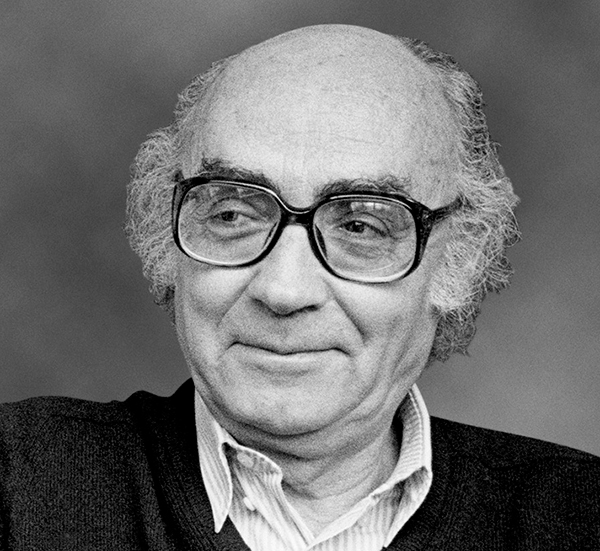
José de Sousa Saramago was born in Portugal in 1922, the son of poor rural workers. His parents could not afford to send him to school, so he trained as a mechanic; only later did his talent for writing lead him into work as a translator, journalist, and editor. A politically engaged man, Saramago found that his first novel, Land of Sin (Terra do Pecado, 1947), was not well received by the conservative Catholic regime of Estado Novo (New State), which blocked the book’s production. He resurfaced in 1966 with Possible Poems (O Poemas Possìveis) and, after writing more novels, received the Nobel Prize for Literature in 1998. He moved to Spain following the Portuguese government’s censorship of one of his books in 1992. He lived there until his death in 2010.
Other key works
1982 Baltasar and Blimunda
1984 The Year of the Death of Ricardo Reis
1991 The Gospel According to Jesus Christ
2004 Seeing
See also: The Divine Comedy ✵ The Canterbury Tales ✵ Don Quixote ✵ Candide ✵ Gulliver’s Travels ✵ Animal Farm ✵ Lord of the Flies